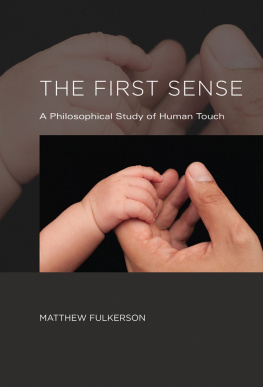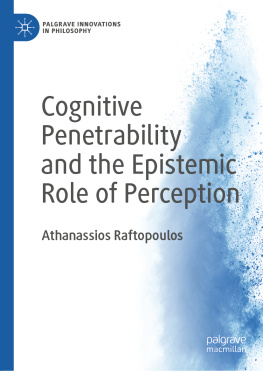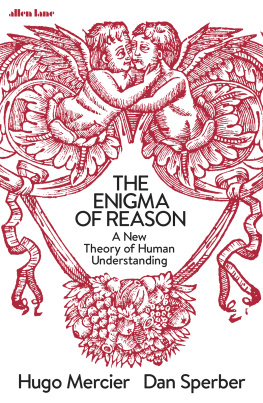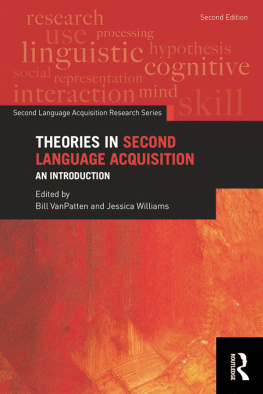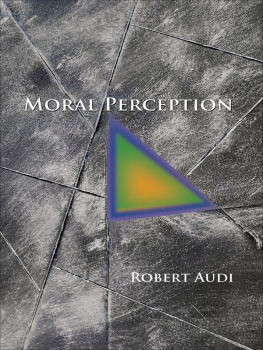Brewer, Bill , St Catherine's College, Oxford
Perception and Reason
Print ISBN 0199250456, 2002
doi:10.1093/0199250456.001.0001
Abstract: Discusses the role of conscious experiences in the acquisition of empirical knowledge. Most epistemology of perception takes a person's possession of beliefs about the mind-independent world for granted and goes on to ask what further conditions these beliefs must meet if they are to be cases of knowledge. I argue that this approach is completely mistaken. Perceptual experiences must provide reasons for empirical beliefs if there are to be any determinate beliefs about particular objects in the world at all. So there are epistemic requirements upon the very possibility of empirical belief. The crucial epistemological role of experience lies in its essential contribution to the subject's understanding of certain perceptual demonstrative contents, simply grasping which provides him with a reason to endorse them in belief. I explain in detail how this is so; defend my position against a wide range of objections; compare and contrast it with a number of influential alternative views in the area; and bring out its connection with Russell's Principle of Acquaintance, and its consequences for the compatibility of content externalism with an adequate account of self-knowledge.
Keywords: Brewer,empirical belief,empirical knowledge,epistemology,externalism,perception,perceptual content,perceptual experience,philosophy,philosophy of mind,reason,self-awareness,self-knowledge
Acknowledgements
John Campbell and Naomi Eilan have been a constant source of inspiration to me throughout the long period during which my ideas for this book have been taking shape. Their philosophical depth and direction have given me a model to emulate; their constructive criticism is evidentto me at leastin every chapter; and their friendship, encouragement, and support have been vital. I would like to take this opportunity to thank them both very much indeed for all that they have done.
Through discussions and comments in various contexts over the years, many other people have made a very significant and much appreciated contribution to this work. I would like to thank Michael Ayers, Jos Bermdez, Justin Broackes, Quassim Cassam, David Charles, Bill Child, Martin Davies, Bob Frazier, Lizzie Fricker, Marcus Giaquinto, Bob Hargrave, Christopher Hookway, Jennifer Hornsby, Susan Hurley, Wolfgang Knne, Mike Martin, Peter Milne, Adrian Moore, Paul O'Grady, Manuel Perez Otero, David Owens, Christopher Peacocke, Carolyn Price, Daniel Quesada, Johannes Roessler, Ernest Sosa, Helen Steward, Tom Stoneham, Rowland Stout, Peter Sullivan, Mark Textor, Charles Travis, James Van Cleve, Ralph Walker, Asa Wikforss, and Tim Williamson. Special thanks are due to John Campbell, Naomi Eilan, Lizzie Fricker, Christopher Peacocke, Helen Steward, and Rowland Stout, who also gave me extended written comments on a previous version of the complete manuscript. Many graduate students have heard or read earlier versions of this material and provided extremely helpful feedback. I would like to acknowledge in particular the contributions of Christian Beyer, Alan Brown, Lisa Busch, Imogen Dickie, Brie Gertler, Greville Healey, Jason Kawall, Michael Oliva Cordoba, Kirsten Petzold, Hannah Pickard, Baron Reed, Angus Ritchie, Mark Siebel, and Christian Stein. I would also like to record my deep intellectual debt here to the formative writings of Peter Strawson, Michael Dummett, Michael Ayers, Gareth Evans, John McDowell, and Christopher Peacocke.
end p.vii
I am grateful to my colleges, St Catherine's and Magdalen, and also to Oxford University, for granting me sabbatical leave for two terms in 1997, during which a first draft of this book was written, and especially to the British Academy's Humanities Research Board for funding one of these terms of leave, without which this would certainly not have been possible. I made my final revisions, read proofs, and prepared the index during a very enjoyable semester visiting the University of California at Berkeley. I appreciate all the support and hospitality I received there. Although it was late in the day for the book, I had extremely productive discussions of the issues it addresses in Berkeley with Cheryl Chen, Alan Code, Eddie Cushman, Donald Davidson, Hannah Ginsborg, Peter Hanks, Sean Kelly, Jonathan Lebowitsch, Josh Sheptow, and Richard Wollheim.
Peter Momtchiloff of Oxford University Press has been a wonderfully supportive and flexible editor, from the moment he first approached me about this project until its final completion. I thank him very much for his enthusiasm, encouragement, advice and patience. Maura High was a first class copy editor, whose experience, wisdom, and keen eye are much appreciated. I am also very grateful to Angela Blackburn, my excellent production editor and typesetter.
I would also like to thank the following:
Cambridge University Press for permission to use material from my paper 'Experience and Reason in Perception', in A. O'Hear (ed.), Current Issues in the Philosophy of Mind, in Chapters . |
Blackwell Publishers Ltd. for permission to use material from my paper 'Internalism and Perceptual Knowledge', European Journal of Philosophy, (1996), 259-75, in Chapter . |
The editor and publishers of the American Philosophical Quarterly for permission to use material from my paper 'Foundations of Perceptual knowledge', American Philosophical Quarterly, (1997), 41-55, in Chapter . |
I should offer a word of explanation about the photograph on the cover. An unfolded origami figure in a sense displays what would


